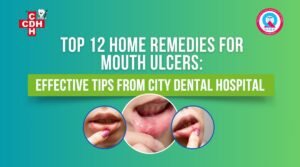Dental sealants are a type of dental treatment that helps to prevent tooth decay. They are a thin liquid coating applied to the chewing surfaces of the molars and premolars of the rear teeth. A dentist applies the sealant, which is then cured and hardened to screen and protect the teeth from bacteria that cause cavities.
They mainly serve as a barrier between food particles and dangerous microorganisms on the tooth’s surface. This barrier will stop the development of cavities, a common dental problem that disproportionately affects young children and teenagers.
Tooth decay and cavities rank among the most common medical conditions globally. They significantly affect children and teenagers. Cavities can impact anyone going through teething, even babies.
Protecting teeth from cavities is vital because untreated cavities develop and damage deeper tooth layers. The best defence against cavities is routine dental care and proper brushing and flossing techniques.
Understanding Grooves in Teeth
Maintaining dental health and avoiding complications with teeth requires understanding tooth anatomy, especially the function of grooves. Maintaining good oral hygiene and scheduling routine dental examinations are crucial for tooth preservation.
A tooth consists of three parts
Crown: The area that is visible above the gum line.
Neck: The neck is the point where the root and crown converge.
Root: The section of the jawbone that is embedded.
The natural lines or holes on the chewing surfaces of teeth, especially molars and premolars, are called grooves. They facilitate food grinding and chewing.
The role of grooves in tooth decay
Although teeth grooves are necessary for healthy chewing, they can also be a haven for bacteria. These microscopic fissures trap food and plaque, fostering the ideal habitat for developing dangerous germs.
The reasons behind its occurrence are as follows:
A buildup of Food Debris: As food particles become stuck in the grooves, bacteria can find a source of nutrients.
Proliferation of Bacteria: The acids that plaque-forming bacteria create draw in tooth enamel.
Cavity Formation: As a result of the acid’s gradual erosion of the enamel, a cavity results.
How to Protect Teeth from Cavities
One’s general health and dental health are significantly impacted by oral hygiene, which makes it extremely important. Here are some primary reasons highlighting the importance of oral hygiene:
- Preventing Dental Issues: Good oral hygiene, which includes brushing and flossing, can prevent tooth decay, cavities, and gum disease. These procedures also help eliminate food particles and plaque from teeth.
- Maintaining Fresh Breath: Good dental hygiene helps manage bad breath or halitosis by getting rid of the bacteria that make your mouth smell.
- Maintaining the Beauty of Your Smile: Good oral care makes maintaining teeth’ cleanliness and stain-free condition possible.
- Preventing Tooth Loss: Gum disease is one of the main causes of adult tooth loss, and it is frequently brought on by inadequate dental care. Keeping your teeth healthy can help avoid this.
- Supporting Digestive Health: Chewing is the initial stage of the digestive process, which promotes digestive health. Teeth that are kept in reasonable condition facilitate efficient chewing, which helps improve digestion.
- Preventing Systemic Health Problems: Mounting evidence links dental health to systemic diseases like diabetes, heart disease, respiratory infections, and pregnancy difficulties. Maintaining good dental hygiene might lower one’s chance of developing these illnesses.
Some of the dietary tips to prevent cavities:
- Avoid sugar and starchy foods
- Avoid alcohol
- Intake of calcium, fruits, and leafy veggies.
- Add dairy products, nuts and seeds, fish and green tea to your diet
- Carrots and strawberries promote dental health
- Drinking fluoridated water helps to strengthen tooth enamel and prevent cavities.
- Follow healthy diet
The role of Dental sealants in cavity prevention
Dental sealants cover the surface of your teeth with “tooth-coloured” plastic to prevent cavities. This protective coating makes it difficult for bacteria to remain on the surface of teeth. Since dental sealants don’t damage enamel, they are a safe and efficient way to keep your teeth safe.
Benefits of Dental Sealants
- Protection against decay and cavities: Dental sealants cover the tops of molars with a “tooth-coloured” plastic, which helps shield teeth against cavities and tooth decay. This extra layer of defence makes it challenging for bacteria to stay on the surface of a tooth.
- Longevity and durability: Sealants applied in childhood can shield teeth for many years if correctly maintained when teeth are most at risk of cavities. If you take good care of your teeth and refrain from biting hard items, your sealants should stay longer. The dentist checks the sealants during regular dental checkups and could suggest reapplication or repair if necessary.
- Improved oral health: Dental sealants can avoid tooth decay, saving time and money by lowering the demand for more expensive dental procedures. In addition to covering teeth and making brushing simpler, sealants also protect against bacteria that cause gum disease and cavities and improve oral health.

Dental Sealants Procedure
Step-by-step process of applying dental sealants
- First, thoroughly clean your teeth.
- We’ll use cotton to wipe every tooth dry.
- The tooth will be covered with an absorbent substance to keep it dry.
- The chewing surfaces of the teeth will be roughened by the dentist using an acid solution, ensuring that the sealant sticks to the teeth.
- After being cleaned of the acid, the teeth are dried.
- A stain will be applied on the tooth enamel, where the bond will quickly adhere to the tooth and cement.
Duration and aftercare
After application, you are free to eat and drink as usual. No extra care is required for sealants. These adhesives can prevent tooth decay for up to ten years. Maintaining a healthy mouth and regular dental checkups are crucial for longevity. If there are unseen cracks in the sealant, they may cause serious degradation. When wear out or chipping is noticed, your dentist will replace sealants as needed.
Dental Sealants Cost
Factors influencing the cost of dental sealants:
- Geographical factors can also affect costs because regional living standards and dental care accessibility impact pricing.
- The dentist’s training and experience may also impact the price.
- The pricing might differ depending on the type of sealant material used.
- The total cost will depend on how many teeth need sealants.
- Dental insurance can lower out-of-pocket costs by covering all or a portion of the expenditure.
- Several dentists provide packages or discount schemes to lower the cost of dental sealants.
Average cost range and variations
- The average cost of applying a tooth sealant is between INR 1000 and INR 4000.
- Comparing dental sealants to the costs of treating cavities and other dental problems, they are an affordable solution.
Tooth Sealant vs. Other Protective Measures
Comparison with other dental treatments (fluoride, fillings, etc.):
- Dental sealants shield the surface’s pits and cracks, particularly in posterior teeth, while fluoride mainly shields smooth surfaces. It might be necessary to reapply every two years. It is comparatively underutilized as a preventive dental procedure.
- You should choose sealant and filler depending on your child’s age and dental needs. Sealants and fillers might be combined because sealants are usually applied as a preventative measure and fillers as a restorative one. Fortunately, an experienced dentist will often help you make a choice.
Advantages of dental sealants:
- It prevents food deposits and plaque from building up.
- Dental sealants are painless to apply.
- Helps in Dental Care Maintenance.
- For all youngsters, it is a preventive step.
- It can live for a maximum of ten years.
- It is easy to maintain and repair.
- Simple and painless applications.
- Almost transparency.
- Cost-effectiveness
Tips for Maintaining Dental Sealants
Oral hygiene practices post-sealant application:
To keep your dental sealant safeguarding your teeth from cavities and other harm, it’s critical to maintain it. Here are some more pointers for keeping your dental sealant in good condition:
- Brush your teeth twice a day using a soft-bristled toothbrush.
- Floss frequently to remove bacteria and dental plaque between your teeth.
- Avoid chewing on challenging items or meals, which can harm your sealant.
- Get cleanings and checkups from your dentist regularly.
Regular dental checkups and maintenance:
Make sure you have regular cleanings and examinations at your dentist. During these visits, your dentist can perform any necessary repairs by looking for any indications of wear or damage to your dental sealants.

Conclusion
Dental sealants provide an extended duration of tooth health preservation and financial savings as a preventive measure against cavities. It’s essential to consider the advantages of dental sealants and the expense and possible discomfort of cavity treatment. Before choosing, think about your financial situation, dental treatment availability, and your oral health goals.
Maintaining oral health and preventing cavities is very important; you should spend two minutes brushing your teeth at least twice daily. Apply fluoride toothpaste and a soft-bristled brush. Don’t forget to brush your tongue. Daily, use floss, a water flosser, or other items designed to clean the spaces between your teeth.
Contact City Dental Hospital if you are experiencing tooth issues or have questions about our dental services. City Dental Hospital is the best dental hospital in India; we provide accommodating hours, personalized care, reasonable prices, clear treatment descriptions, and first-rate patient support. Here, we follow strict and secure hygienic guidelines.
You can consult our dentist to learn more about sealants and whether they suit you or your child. You can contact us at at +91-81000-42000.















